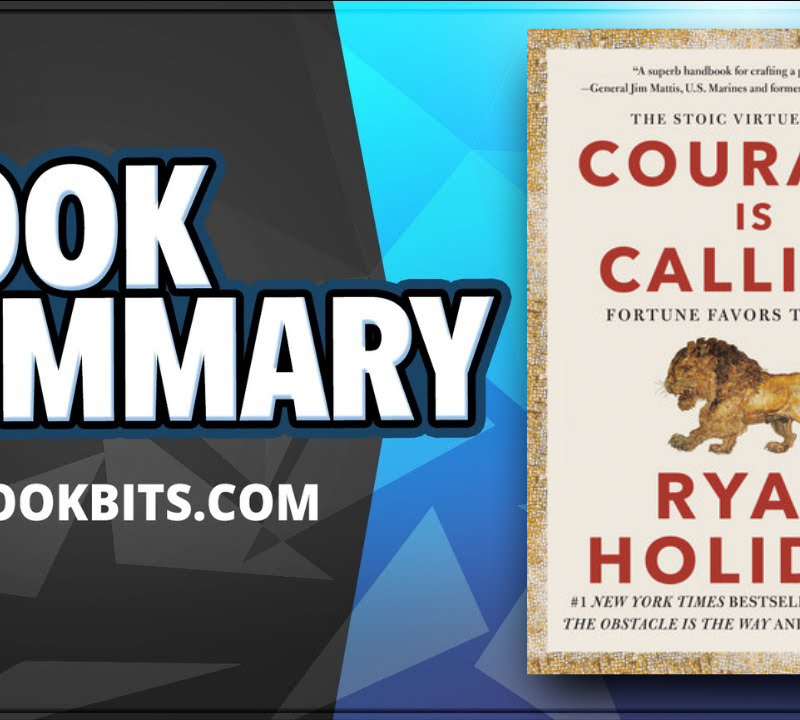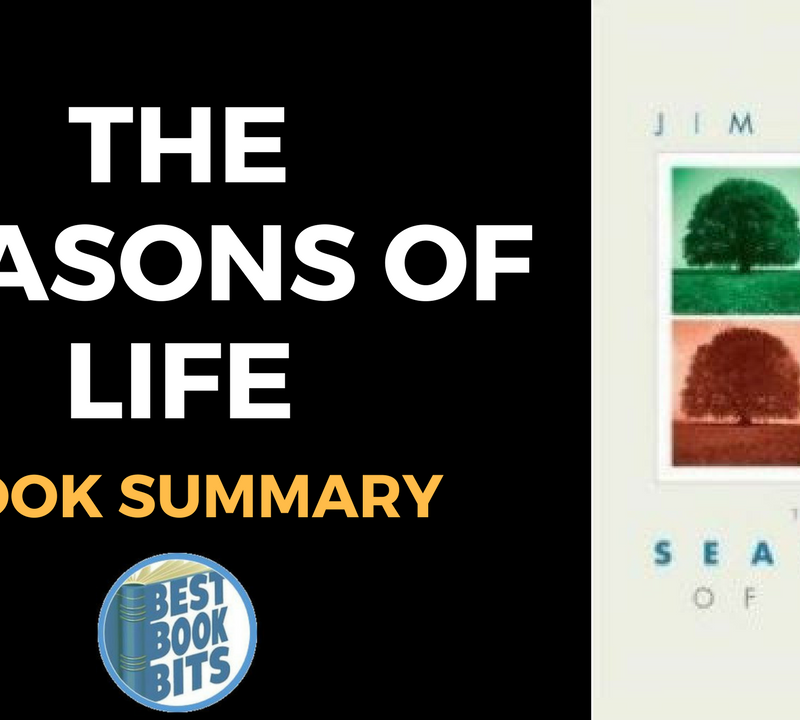< DOWNLOAD THIS SUMMARY IN PDF HERE >
< FOLLOW US HERE > |YouTube |Spotify | Instagram | Facebook | Newsletter | Website
The Last Lecture by Randy Pausch
A lot of professors give talks titled ‘The Last Lecture’. Professors are asked to consider their demise and to ruminate on what matters most to them: What wisdom would we impart to the world if we knew it was our last chance? If we had to vanish tomorrow, what would we want as our legacy?
When Randy Pausch, a computer science professor at Carnegie Mellon, was asked to give such a lecture, he didn’t have to imagine it as his last, since he had recently been diagnosed with terminal cancer. But the lecture he gave, ‘Really Achieving Your Childhood Dreams’, wasn’t about dying. It was about the importance of overcoming obstacles, of enabling the dreams of others, of seizing every moment (because time is all you have and you may find one day that you have less than you think). It was a summation of everything Randy had come to believe. It was about living.
In this book, Randy Pausch has combined the humour, inspiration, and intelligence that made his lecture such a phenomenon and given it an indelible form. It is a book that will be shared for generations to come.
“Many people might expect the talk to be about dying. But it had to be about living.” — Randy Pausch
- Randy Pausch was a professor of Computer Science, Human Computer Interaction, and Design at Carnegie Mellon University.
- He was diagnosed with pancreatic cancer and had ten tumors in his liver—given only months left to live.
- His famous ‘last lecture’ was given on Sept 18, 2007, and he passed away on July 25, 2008.
- The book covers 53 short ‘lectures’ (some of which his students called ‘Pauschisms’). I’ve selected my favorites and top quotes for this book summary.
25 Life Lessons from The Last Lecture
Here are my top takeaways from the speech.
- Play the hand you are dealt.
- “We cannot change the cards we are dealt, just how we play the hand.”
- Do the right thing.
- “When you do the right thing, good stuff has a way of happening.”
- Brick walls are there for a reason.
- “The brick walls are there for a reason. They’re not there to keep us out. The brick walls are there to give us a chance to show how badly we want something … The brick walls are there to stop the people who don’t want it badly enough. They’re there to stop the other”
- If you have a question, then find the answer.
- “Open the encyclopedia. Open the dictionary. Open your mind.”
- Focus on the fundamentals.
- “You’ve gotto get the fundamentals down, because otherwise the fancy stuff is not going to work.”
- Often, things are in your control (for better or worse).
- “No matter how bad things are, you can always make things worse. At the same time, it is often within your power to make them better.”
- Time must be managed, like money.
- “Time is all you have. And you may find one day that you have less than you think.”
- Give the gift of knowledge, not stuff.
- “My parents were frugal. Unlike many Americans, they would never buy anything for the purposes of impressing other people, or as any kind of luxury for themselves. But they happily bought the World Book, spending a princely sum at the time, because by doing so, they were giving the gift of knowledge to me and my sister. They also ordered the annual companion volumes.”
- The best gift an educator can give is to get somebody to become self-reflective.
- “It is an accepted cliché in education that the number one goal of teachers should be to help students learn how to learn. I always saw the value in that, sure. But in my mind, a better number one goal was this: I wanted to help students learn how to judge themselves … The only way any of us can improve … is if we develop a real ability to assess ourselves.”
- Use head fakes to teach.
- “Remember the head fake? That’s when you teach somebody something by having them think they’re learning something else.”
- Feedback means someone cares.
- “When you see yourself doing something badly and nobody’s bothering to tell you anymore, that’s a bad place to be. You may not want to hear it, but your critics are often the ones telling you they still love you and care about you, and want to make you better.”
- The real point of sports is more important than sports.
- “When we send our kids to play organized sports—football, soccer, swimming, whatever—for most of us, it’s not because we’re desperate for them to learn the intricacies of the sport. What we really want them to learn is far more important: teamwork, perseverance, sportsmanship, the value of hard work, an ability to deal with adversity.”
- The job of a parent is encouragement.
- “As I see it, a parent’s job is to encourage kids to develop a joy for life and a great urge to follow their own dreams. The best we can do is to help them develop a personal set of tools for the task.”
- Luck is where preparation meets opportunity.
- (Attributed to Seneca)
- Inspiration is the ultimate tool for doing good.
- “When you’re putting people on the moon, you’re inspiring all of us to achieve the maximum of human potential, which is how our greatest problems will eventually be solved.”
- Earnest is better than hip.
- “I’ll take an earnest person over a hip person every time, because hip is short-term. Earnest is long-term. Earnestness is highly underestimated. It comes from the core, while hip is trying to impress you with the surface.”
- Problem solving beats complaining.
- “Too many people go through life complaining about their problems. I’ve always believed that if you took one-tenth the energy you put into complaining and applied it to solving the problem, you’d be surprised by how well things can work out.”
- If you wait long enough, people will surprise and impress you.
- “In the end, people will show you their good side. Almost everybody has a good side. Just keep waiting. It will come out.” — Jon Snoddy
- Other than that, Mrs. Lincoln, how was the play?
- “I’d say that to students as a reminder not to focus on little issues, while ignoring the major ones.”
- Experience is what you get when you didn’t get what you wanted.
- “And experience is often the most valuable thing you have to offer.”
- Working hard is the best shortcut.
- “A lot of people want a shortcut. I find the best shortcut is the long way, which is basically two words: work hard … As I see it, if you work more hours than somebody else, during those hours you learn more about your craft. That can make you more efficient, more able, even happier. Hard work is like compounded interest in the bank. The rewards build faster.”
- Always have a plan.
- “One thing that makes it possible to be an optimist is if you have a contingency plan for when all hell breaks loose. There are a lot of things I don’t worry about because I have a plan in place if they do.”
- Tell the truth, all the time.
- “If I could only give three words of advice, they would be ‘tell the truth.’ If I got three more words, I’d add: ‘All the time’ … Honesty is not only morally right, it’s also efficient.”
- Always have fun.
- “I mean, I don’t know how notto have fun. I’m dying and I’m having fun. And I’m going to keep having fun every day I have left. Because there’s no other way to play it.”
- If you lead your life the right way, your dreams will come to you.
- “It’s not about how to achieve your dreams. It’s about how to lead your life. If you lead your life the right way, the karma will take care of itself. The dreams will come to you.”
< DOWNLOAD THIS SUMMARY IN PDF HERE >
< FOLLOW US HERE > |YouTube |Spotify | Instagram | Facebook | Newsletter | Website














